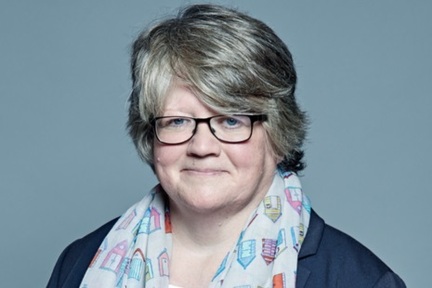Health and care minister Thérèse Coffey to prioritise 'ambulances, backlogs, care, doctors'
Thérèse Coffey has been appointed England’s third health and social care secretary in two months and has promised to bring an ‘ABCD’ focus to her new job by solving the problems of ambulances, backlogs, social care and patient appointments for doctors and dentists.

Prime Minister Liz Truss made a series of appointments to her cabinet on her first day in Downing Street, including removing Steve Barclay as Secretary of State for Health and Social Care. As well as being given the top health job, Thérèse Coffey is also the country’s new deputy prime minister.
Responding to her appointment, Thérèse Coffey, who has been MP for Suffolk Coastal since 2010, said: “I am honoured to be asked to serve as SoS for Health and Social Care. Patients are my top priority, as we focus on ABCD - ambulances, backlogs, care, doctors and dentists.”
She has been the Secretary of State at the Department for Work and Pensions since September 2019 and prior to this was a minister at the Department for Environment, Food and Rural Affairs (July-September 2019).
Lancashire-born, Thérèse Coffey grew up in Liverpool, enjoys watching football and says her favourite band is Muse.
After briefly attending Oxford University, she graduated from University College London (UCL) with a PhD in chemistry. She qualified as a chartered management accountant and became finance director for a UK subsidiary of Mars. She has also worked for the BBC. Thérèse Coffey has also served as deputy leader of the House of Commons (May 2015-July 2016).
Thérèse Coffey’s full in-tray will see her grappling with the fact that over 1.6m people need care at home but cannot access it due to underfunding and care workforce shortages.
July's delayed discharges 'similar' to winter numbers
Ms Coffey’s predecessor Steve Barclay has only been in the job since 5 July - when he replaced Sajid Javid as health secretary.
On 5 September, Mr Barclay told the House of Commons: "We are putting an intense focus on the issue of delayed discharge.
“Delayed discharge means longer waits in A&E, lengthier ambulance handover times and the risk of patients deteriorating if they remain in hospital beds too long – particularly the frail elderly.
"The most recent figures, from the end of July, show that the number of these patients is just over 13,000 – similar numbers to the winter months."
In a statement, Jane Townson, the chief executive of the Homecare Association, said: "At least half of delayed discharges from hospital are due to people waiting for home care, as there is a critical shortage of home care workers.
"This hampers the ability of hospitals to admit new patients, contributing to increased ambulance response times and NHS waiting lists of over 6.7m.
"In the community, unmet need is high and rising. Councils have waiting lists for assessments for care of more than half a million. Preventable deterioration of health adds further pressure to overstretched health services."
Jane Townson is calling on the government "to invest more in home-based and community support and care, to shift the dial on demand, improve our health and well-being, and reduce costs. As well as improving lives, this would also help to support economic recovery".
Latest News
 29-Jul-24
Dementia Bus gives carehome.co.uk staff insight into life with dementia
29-Jul-24
Dementia Bus gives carehome.co.uk staff insight into life with dementia
 01-Mar-24
Find out the top care homes in 2024
01-Mar-24
Find out the top care homes in 2024
 21-Mar-23
UK's top care homes in 2023 revealed
21-Mar-23
UK's top care homes in 2023 revealed
 03-Jan-23
carehome.co.uk launches free care helpline
03-Jan-23
carehome.co.uk launches free care helpline
 13-Dec-22
5 mins with Emily Whitehurst, chief operating officer for Constantia Healthcare
13-Dec-22
5 mins with Emily Whitehurst, chief operating officer for Constantia Healthcare